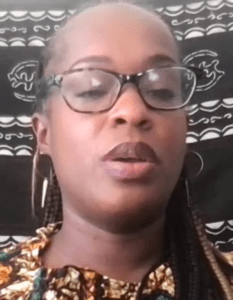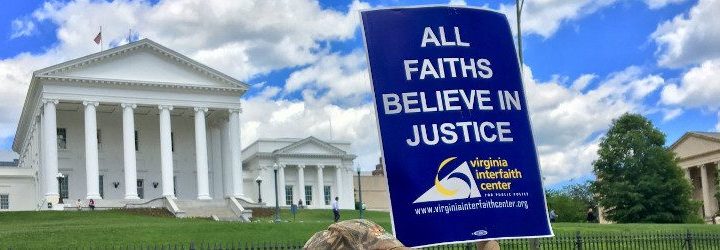Organizers of a faith-based campaign to abolish the death penalty in Virginia say current signs of favorable legislative momentum are due, at least in part, to pressure being applied by churches and other religious communities.
And their hope is that statewide vigils near historic lynching sites on Jan. 22 will provide prayerful-but-firm reminders to members of the Virginia General Assembly that people of faith across the Commonwealth are opposed to capital punishment.

LeKeisha Cook
“We believe in the power of prayer. That’s built into this campaign because the death penalty was birthed out of lynching and Jim Crow and slavery. This is why these vigils are being held in close proximity to where some of the state’s lynchings took place,” said LaKeisha Cook, a Baptist minister who serves as the justice reform organizer of the Virginia Interfaith Center for Public Policy, which has coordinated religious support for the abolition of capital punishment in Virginia.
The legislation is supported by Virginia Gov. Ralph Northam, and the bill’s chief co-sponsor is Republican Sen. Bill Stanley, who joined with Democrats in the 10-4 vote on Jan. 18 to send the measure from the Judiciary Committee to the Finance Committee.
The Senate action suggests the tide may be rising in the legislature for abolishing state-sanctioned executions, Cook said. “That 10-4 vote is a vote in favor of abolition, which is huge. We thought the Senate was going to be the biggest hurdle for us, and I’m sure the House is watching.”
The interfaith center’s effort connects Virginia’s slavery and lynching history with its use of capital punishment. That all of the state’s current death row inmates are Black testifies to the existing law’s racist design and application, according to the campaign.
A fact sheet provided by organizers shows that Virginia was an early and prolific user of the death penalty and that it was targeted almost exclusively at African Americans. Nearly 540 Blacks were executed by the state between 1800 and 1900, compared to 45 whites during the same period.
“A lot of people do not realize capital punishment is a descendent of lynching and slavery.”
No wonder, Cook added, “there were little over 100 lynchings, which is low compared to other states. But in total executions we are a little under 1,400 — only second in the country. A lot of people do not realize capital punishment is a descendent of lynching and slavery.”
So it is fortuitous that the Jan. 22 prayer vigils, scheduled months ago, come just as the Virginia General Assembly is taking up legislation to end capital punishment. “It wasn’t designed that way, but it’s great timing,” Cook said.
The vigils will be led by clergy and lay leaders in Alexandria, Danville, Richmond, Roanoke and Tidewater. The names of lynching victims will be read as part of prayer litanies created for the events. The gathering in Richmond will be streamed on Facebook at 12 p.m. Eastern.
The gatherings, like the campaign itself, testify to the influence faith-based coalitions can have on public policy, she said. “It shows us that when it comes to issues such as the dignity of life and the sanctity of life, it doesn’t matter what your faith tradition is because there are certain things that bind us together. We are fighting for justice.”
Related articles:
New effort to repeal federal death penalty is beginning
Opposition to capital punishment reportedly growing among conservatives


